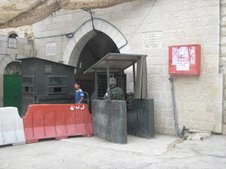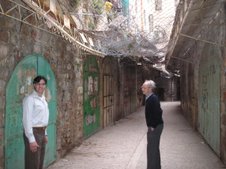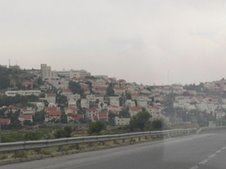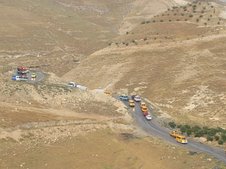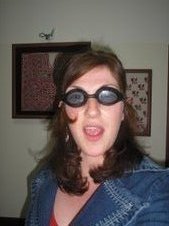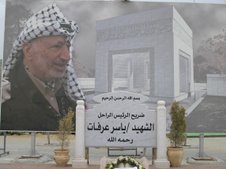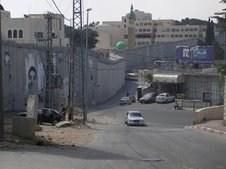So the time has finally come for me to pack up my bags and life here in Abu Dis. As regards timing, I'm just not sure. After things went nuts in Gaza it seemed a little uncertain as to what might happen here in the West Bank. In this small town it's hard to imagine little else happening save from an escaped goat or a couple of illegal ford taxi drivers crunching in to each other.
But of course a superficial peace belies a rumbling belly of discontent. The events in Gaza triggered a series of Fatah sponsored arrests of Hamas members, including here, a Sheikh and a local teacher. Locally employed people here are dubious as to whether the promised delivery of witheld tax revenues will finally be released by Israel, after months of half or no salaries.
And life continues. People still cannot reach Jerusalem, hospitals, family. Life remains stuck in the same rut which has affected at a psychological level almost every member here. There are still around 75 people from Abu Dis in prison with little access to health treatment, unable to see their families and unsure as to when they will be released.
And to to everyone here's dismay I am returning to England without a Palestinian husband. Ah well.
But the friendships which have been founded here will be long lasting. After all - you can't make a soldier treat someone like a human being, although you may try. And you can't tell Ehud Olmert that his intentions of the slow demise of the Palestinian people will never, ever work as long as Palestinians remain living on this soil. But you can share some time with people here, who need a break from their daily, routine life so much. And you can extend a hand and receive a thousand in return.
And you can return back to your home country and tell their stories. Which is what I intend to do. See you soon. Thanks so much for reading. XXXXXXXXXXXXXXXXXXXXXX
Monday, June 25, 2007
Monday, June 18, 2007
Welcome back
Oof. Sorry it has been a long time- I took a week or so in the Egyptian Sinai for a break, and have since been getting stuck back in to work here, and wondering how best to unravel my life in Abu Dis which has become so strangely normal, in preparation for my return to England.
Having never previously travelled in Israel proper it was interesting, if a little daunting, to gain a different perspective and be able to see the contrast between Israel and Palestine in its incredulous reality. On the way to the central bus station in West Jerusalem, crowded and dishevelled streets quickly gave way to smart shiny buildings, glamourous shopfronts and strictly Orthodox Jewish neighbourhoods. To enter the bus station itself one must first navigate through the airport-style security- baggage x-rays, metal detectors. Somewhat ironic, as once inside the station, the place was crowded of youths, girls and boys, clad in military fatigues, all with enormous guns slung uncomfortably over their shoulders or between their legs, as they hung around picking at sandwiches and waiting for buses.
The bus route towards Egypt hugs the length of the multi-coloured shores of dead sea, tracing the border with Jordan through rocky, mountainous desert. The final stop in Israel's south is Eilat- a Disneyland style collection of ghastly hotels and tacky seafront stands selling holiday tat, with an airport strip running through the centre. Needless to say I got out as quickly as I could. To my relief once I had crossed the Taba border, through the deserted immigration building in to Egypt the picture again became familiar- a few old men sitting around battered taxi cabs, smoking cigarettes and shading their wrinkled brown faces from the baking sun. And waiting for punters. "Sabah al gheeeeeeeeeer!" (good morning).
I spent the week on the windy promotory of Dahab, gazing at the fishes and swimming in the jewel blue waters of the Gulf of Aqaba before returning, finally unwound, to Abu Dis. But of course there was little respite. Before I even had time to count my freckles and wash the salt from my hairI received a telephone call to say that a child of fourteen had been arrested on his way home from school. The child who was asthmatic, needed his medecine and the family were hoping that I could help them negotiate their way in to the Police Station at a nearby settlement to see their son.
So I went with them. We were confronted at the entrance by two soldiers, the first of whom in no uncertain terms told us to go home. I spoke to the second soldier, explaining that the boy's mother just wanted to give him some medecine. After a few minutes a couple of residents from the settlement arrived- two men who looked something like self-styled 'security'. I was gruffly asked several times whether I was a lawyer and what I wanted. We were eventually let through to the police station, where we saw the boy in question sitting handcuffed, surrounded by six or so soldiers. The Police Officer behind the desk saw us, and quickly clocked that an allowance must have been made. The soldiers rallied round and we were all pushed outside.
I imagine that any of you reading this who have children would feel that if your son was arrested, you at least had the right to know that his basic health needs were being met. Also you would expect to be told why he was arrested and how long he would be held for. You would probably expect that there would be some kind of representation, a lawyer, a trial, maybe visiting arrangements. Also some evidence or witnesses to the crime.
Not here. The crime in this case? I asked the Police Officer who was busy shouting rudely at the boy's parents:
"What do you want to know? Are you a laywer? Do you have a problem? This boy was thowing stones at army jeeps, the soldiers saw him."
Just to rewind a little. We are talking about a Palestinian town whose security forces are entirely in the hands of the occupying power. The boy was taken whilst on his way home from school, to a Police Station in an illegally built settlement. The crime was throwing stones. This boy, who was on his way home from school, was denied basic rights of representation, a trial, visiting rights for his family. Yet it was us who were asked what we were doing at the Police Station. We were told to go home.
Unfortunately a few minutes after the gates had been locked behind us the boy was taken in a jeep with the soldiers, to a prison somewhere outside of Ramallah. Sitting outside the Police Station with his mother in tears and his poor father wringing his hands in despair I felt worse than useless. Small consolation was the fact that even if I had been a lawyer it probably wouldn't have made a blind bit of difference.
Having never previously travelled in Israel proper it was interesting, if a little daunting, to gain a different perspective and be able to see the contrast between Israel and Palestine in its incredulous reality. On the way to the central bus station in West Jerusalem, crowded and dishevelled streets quickly gave way to smart shiny buildings, glamourous shopfronts and strictly Orthodox Jewish neighbourhoods. To enter the bus station itself one must first navigate through the airport-style security- baggage x-rays, metal detectors. Somewhat ironic, as once inside the station, the place was crowded of youths, girls and boys, clad in military fatigues, all with enormous guns slung uncomfortably over their shoulders or between their legs, as they hung around picking at sandwiches and waiting for buses.
The bus route towards Egypt hugs the length of the multi-coloured shores of dead sea, tracing the border with Jordan through rocky, mountainous desert. The final stop in Israel's south is Eilat- a Disneyland style collection of ghastly hotels and tacky seafront stands selling holiday tat, with an airport strip running through the centre. Needless to say I got out as quickly as I could. To my relief once I had crossed the Taba border, through the deserted immigration building in to Egypt the picture again became familiar- a few old men sitting around battered taxi cabs, smoking cigarettes and shading their wrinkled brown faces from the baking sun. And waiting for punters. "Sabah al gheeeeeeeeeer!" (good morning).
I spent the week on the windy promotory of Dahab, gazing at the fishes and swimming in the jewel blue waters of the Gulf of Aqaba before returning, finally unwound, to Abu Dis. But of course there was little respite. Before I even had time to count my freckles and wash the salt from my hairI received a telephone call to say that a child of fourteen had been arrested on his way home from school. The child who was asthmatic, needed his medecine and the family were hoping that I could help them negotiate their way in to the Police Station at a nearby settlement to see their son.
So I went with them. We were confronted at the entrance by two soldiers, the first of whom in no uncertain terms told us to go home. I spoke to the second soldier, explaining that the boy's mother just wanted to give him some medecine. After a few minutes a couple of residents from the settlement arrived- two men who looked something like self-styled 'security'. I was gruffly asked several times whether I was a lawyer and what I wanted. We were eventually let through to the police station, where we saw the boy in question sitting handcuffed, surrounded by six or so soldiers. The Police Officer behind the desk saw us, and quickly clocked that an allowance must have been made. The soldiers rallied round and we were all pushed outside.
I imagine that any of you reading this who have children would feel that if your son was arrested, you at least had the right to know that his basic health needs were being met. Also you would expect to be told why he was arrested and how long he would be held for. You would probably expect that there would be some kind of representation, a lawyer, a trial, maybe visiting arrangements. Also some evidence or witnesses to the crime.
Not here. The crime in this case? I asked the Police Officer who was busy shouting rudely at the boy's parents:
"What do you want to know? Are you a laywer? Do you have a problem? This boy was thowing stones at army jeeps, the soldiers saw him."
Just to rewind a little. We are talking about a Palestinian town whose security forces are entirely in the hands of the occupying power. The boy was taken whilst on his way home from school, to a Police Station in an illegally built settlement. The crime was throwing stones. This boy, who was on his way home from school, was denied basic rights of representation, a trial, visiting rights for his family. Yet it was us who were asked what we were doing at the Police Station. We were told to go home.
Unfortunately a few minutes after the gates had been locked behind us the boy was taken in a jeep with the soldiers, to a prison somewhere outside of Ramallah. Sitting outside the Police Station with his mother in tears and his poor father wringing his hands in despair I felt worse than useless. Small consolation was the fact that even if I had been a lawyer it probably wouldn't have made a blind bit of difference.
Subscribe to:
Posts (Atom)
